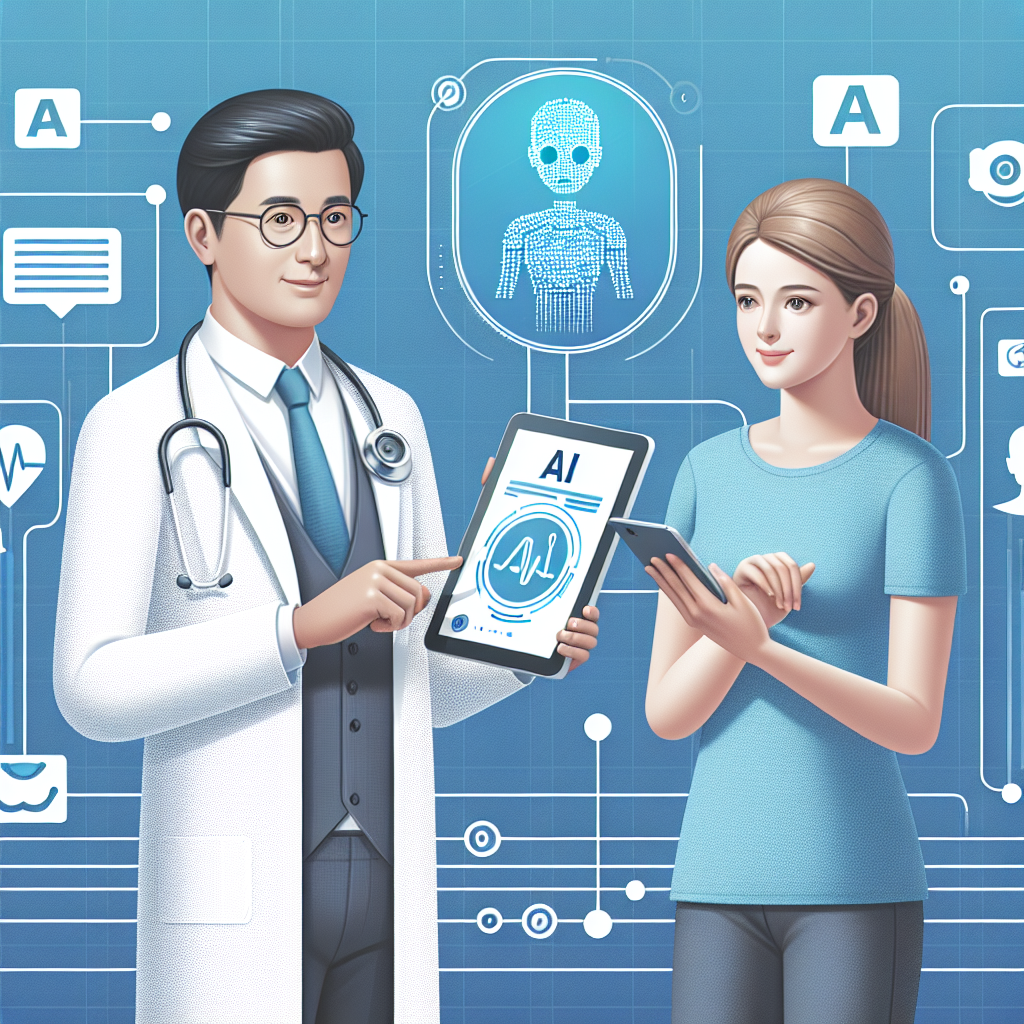Patient engagement is a critical aspect of healthcare that plays a significant role in improving outcomes and overall satisfaction. With the advancements in technology, particularly artificial intelligence (AI), healthcare providers are now able to enhance patient engagement in ways that were previously unimaginable. AI integration in healthcare has the potential to revolutionize patient care by providing personalized and efficient services that cater to the individual needs of patients. In this article, we will explore the benefits of AI integration for patient engagement and how it can positively impact the healthcare industry.
Benefits of AI Integration for Patient Engagement:
1. Personalized Care: One of the key benefits of AI integration in healthcare is its ability to provide personalized care to patients. AI-powered systems can analyze vast amounts of patient data, including medical history, symptoms, and treatment plans, to create personalized care plans tailored to the specific needs of each patient. This level of personalization can lead to better treatment outcomes and improved patient satisfaction.
2. Improved Communication: AI-powered chatbots and virtual assistants can provide patients with real-time assistance and support, enhancing communication between patients and healthcare providers. These tools can answer common questions, schedule appointments, provide medication reminders, and offer general health advice, making it easier for patients to access the information they need when they need it.
3. Remote Monitoring: AI integration allows for remote monitoring of patients’ health, enabling healthcare providers to track and analyze patient data in real-time. This can be particularly beneficial for patients with chronic conditions who require regular monitoring. By using AI-powered devices, such as wearables and sensors, healthcare providers can detect potential issues early on and intervene before they escalate.
4. Predictive Analytics: AI algorithms can analyze large datasets to predict health outcomes and identify potential risks for individual patients. By using predictive analytics, healthcare providers can proactively address health issues before they become serious, leading to better outcomes and reduced healthcare costs. This can also help healthcare providers better allocate resources and plan for future patient needs.
5. Streamlined Administrative Processes: AI integration can streamline administrative processes within healthcare organizations, freeing up time for healthcare providers to focus on patient care. AI-powered systems can automate tasks such as appointment scheduling, billing, and insurance processing, reducing administrative burdens and improving efficiency.
6. Enhanced Patient Engagement: AI integration can enhance patient engagement by providing patients with access to their health information, enabling them to take a more active role in managing their health. Patients can use AI-powered tools to track their health metrics, set goals, and receive personalized recommendations for improving their health. This increased engagement can lead to better health outcomes and increased patient satisfaction.
7. Cost Savings: By streamlining processes, improving efficiency, and enabling proactive care, AI integration can lead to cost savings for healthcare organizations. By reducing unnecessary hospital admissions, minimizing medication errors, and improving overall patient outcomes, healthcare providers can lower costs and improve the quality of care they deliver.
FAQs:
Q: Is AI integration in healthcare secure?
A: Yes, healthcare providers take data security and patient privacy very seriously when implementing AI integration. They adhere to strict regulations and guidelines to ensure that patient data is protected and secure.
Q: How can AI-powered tools improve patient engagement?
A: AI-powered tools can improve patient engagement by providing personalized care plans, enhancing communication between patients and healthcare providers, and enabling patients to track their health metrics and goals.
Q: Will AI integration replace healthcare providers?
A: AI integration is meant to enhance, not replace, healthcare providers. AI-powered systems can assist healthcare providers in delivering more personalized and efficient care, but human interaction and expertise will always be essential in healthcare.
Q: How can patients access AI-powered tools?
A: Patients can access AI-powered tools through healthcare provider websites, mobile apps, and wearable devices. These tools are designed to be user-friendly and accessible to patients of all ages and technical abilities.
In conclusion, AI integration in healthcare has the potential to revolutionize patient engagement by providing personalized care, improving communication, enabling remote monitoring, and streamlining administrative processes. With the benefits of AI integration becoming increasingly apparent, it is clear that the healthcare industry is on the cusp of a new era in patient care. By harnessing the power of AI, healthcare providers can deliver more efficient, effective, and personalized care to their patients, ultimately leading to better health outcomes and increased patient satisfaction.

